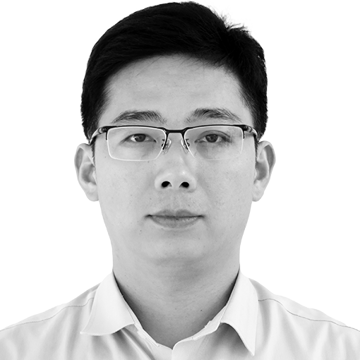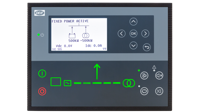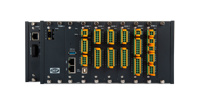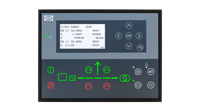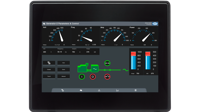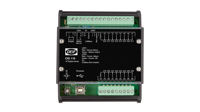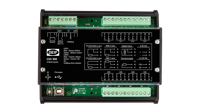MPMC hybrid power plants with DEIF controllers energise rural Kenya
The KOSAP project in Kenya is delivering reliable electricity to remote areas of the country that have traditionally been underserved. The energy is provided by modular hybrid microgrid power plants manufactured by Chinese hybrid power solutions company MPMC Powertech Corp. and using DEIF controllers to prioritise solar power and deliver low-emission energy.
“Stability is and will remain the most important thing for a power source,” says project manager Qiao from Chinese power solutions company MPMC Powertech Corp. “The DEIF system provides this stability, and DEIF plays a core role for our hybrid micro grid solutions.”
Headquartered in Shanghai, MPMC specializes in the research and development, design, production and sales of diesel generator sets and hybrid power system, after years of industry development, the business field has developed from a single type of diesel generator set products to a variety of power generation equipment covering wind, solar, diesel generator and other types of power generation units and energy storage systems, and is committed to providing safer, more reliable, lower carbon and environmental protection diesel and hybrid power solutions for global customers.
Reliable low-emission power in Kenya
On the KOSAP project in Kenya, MPMC’s expertise in hybrid micro grids is helping provide reliable low-emission power to areas that are not covered by the national grid. KOSAP is short for Kenya Offgrid Solar Access Project, and the aim is to develop mini-grids throughout 14 counties. The energy will empower local communities and will be provided by MPMC hybrid power plants.
“KOSAP is a huge project, and we expect to complete it in stages with DEIF’s smart control system,” says Qiao.
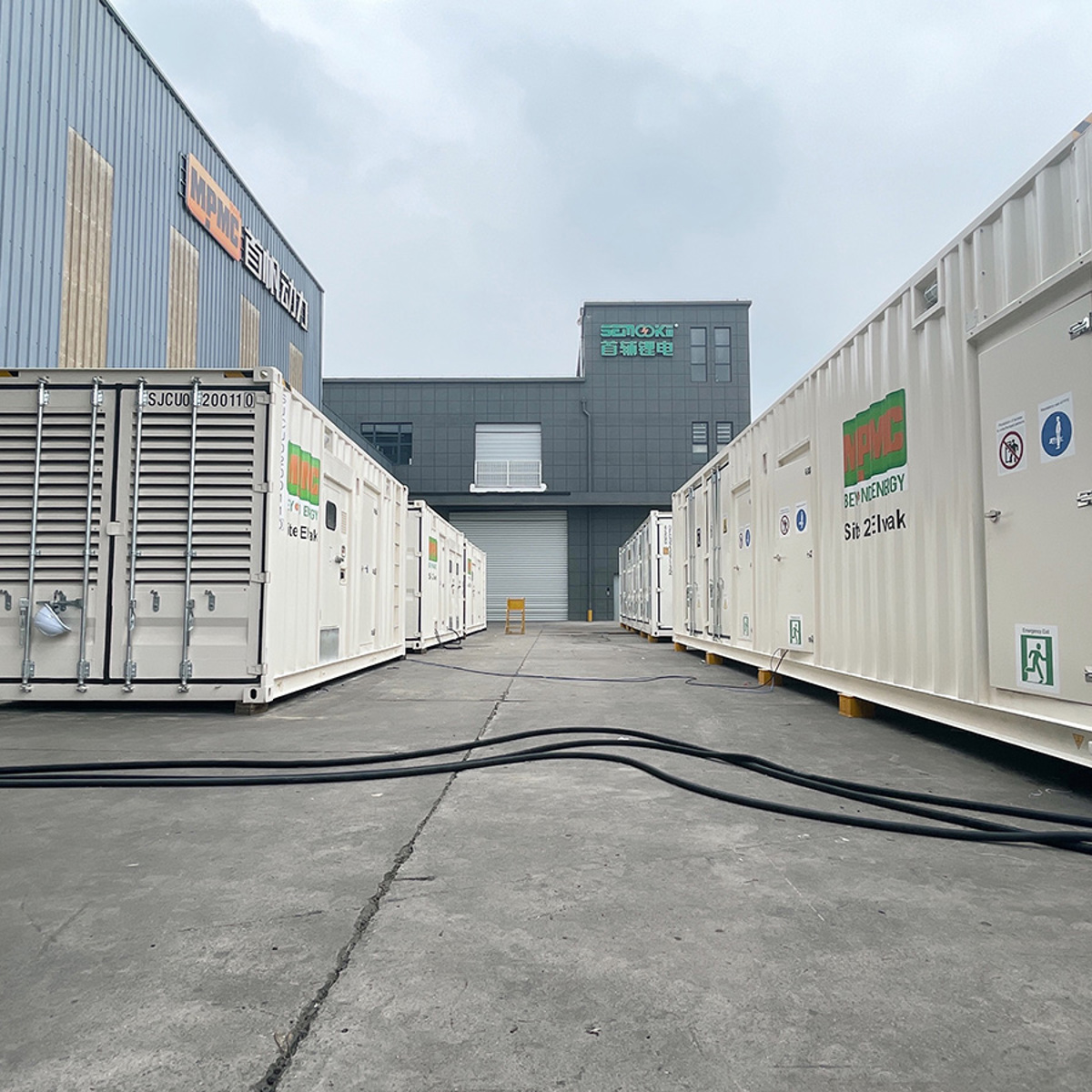
MPMC hybrid micro grid power plants will empower local communities in Kenya through the KOSAP project
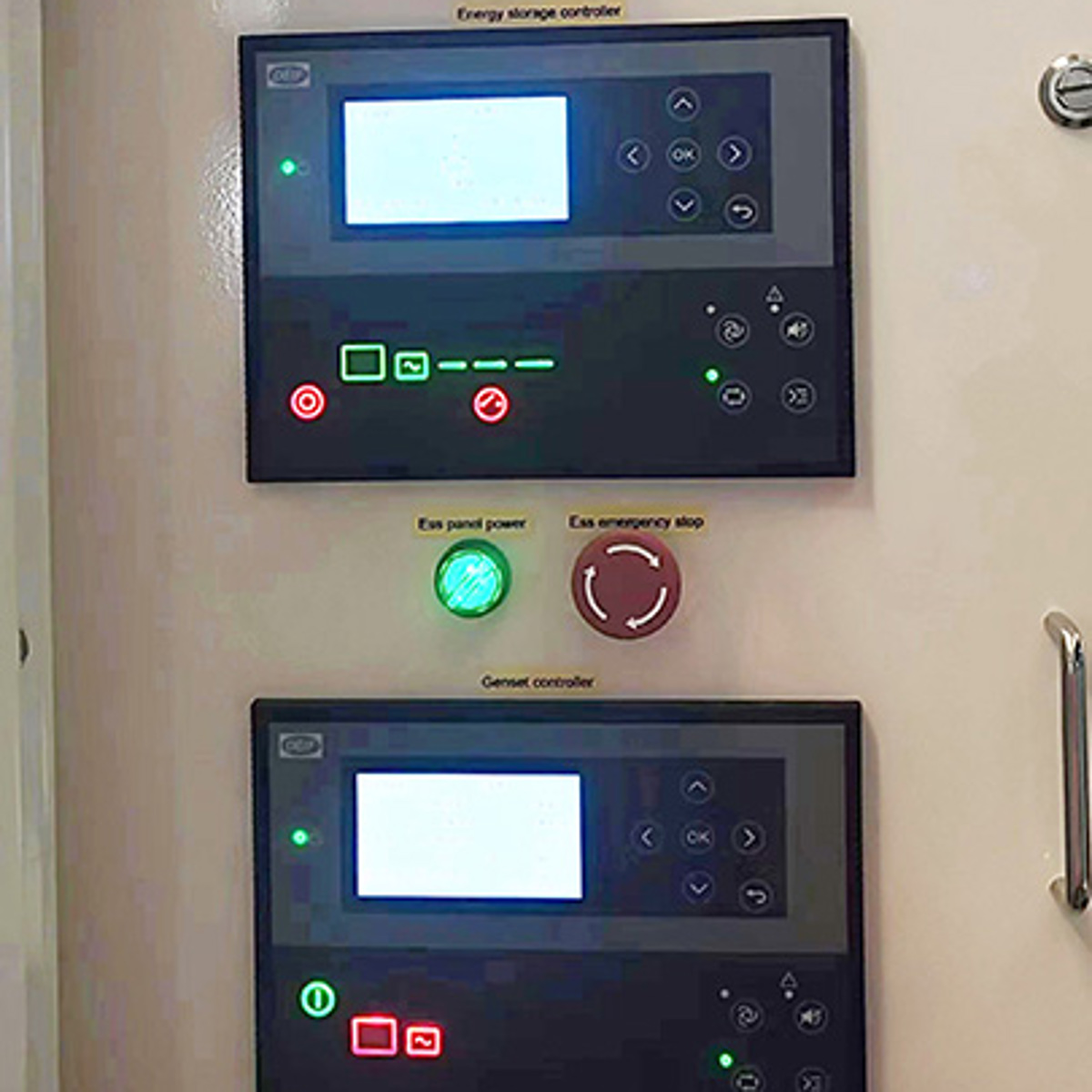
DEIF ASC 150 Storage controllers handle the BESS systems while AGC 150 Generator controllers control the backup diesel gensets
90% fuel savings with solar power and batteries
The MPMC solution generates the required energy for each location using one or several modular hybrid micro grid power plants. Each plant consists of PV panels, battery energy storage system (BESS), standby diesel generators, and auxiliary equipment including fire suppression and HVAC systems.
Each plant provides from 500 to 1,000 kVA of power. Thanks to the abundance of sunshine in Kenya, this energy primarily comes from the PV panels. The BESS stores the solar power and discharges it when needed. The diesel gensets are only started if bad weather or low battery state of charge means that the plant cannot provide the necessary energy otherwise.
“For these plants, the diesel has been totally replaced as a primary source of power by solar power and the BESS; the diesel generator is just for standby and spinning reserve,” explains Qiao. “Fuel savings are at least 90% compared to a total diesel generator solution. Our smart grid provides lower carbon emissions while greatly reducing the operation and maintenance costs of power plants. And we’re able to fully utilise barren land to collect solar energy.”
See this video from MPMC where they test the HBD Series, C&I lithium battery energy storage system.
Making complex application easier
The plants are controlled using MPMC’s proprietary SCADA system and several DEIF controllers: ASC 150 Storage controllers to handle the BESS systems, AMC 600 programmable automation controllers as gateways to the battery management system and for handling PV control, and AGC 150 Generator controllers to control the diesel gensets. The controllers provide the stability and redundancy needed.
“Our client wanted a very smart plant able to handle changing weather conditions and load fluctuations automatically,” says Qiao. “The DEIF controllers helped us solve this complex work situation. Also, these plants will be the main power source for the towns, and the DEIF system is very stable: It is a separate control system which keeps the power generation system working even if the SCADA or top-level controller fails.”
The DEIF controllers communicate with MPMC’s SCADA system and energy management system over a LAN connection which Qiao describes as very easy to set up. The control devices are interconnected in a non-hierarchical relationship instead of a master-slave architecture, improving operating stability. Integrating the DEIF devices with the SCADA system was quite easy.
”The address of all data and values is standard,” says Qiao. “This made it very simple for our SCADA system to communicate with the DEIF controllers.” This process was made easier by the fact that the controllers came from the same supplier, facilitating the design process and resulting in a control system capable of handling complex requirements.
“If we hadn’t had the DEIF devices, the whole system would have been running on cut-off functions,” says Qiao. “For example, we might have had the BESS running in PQ mode all the time” (in other words, in grid-following mode instead of being able to form a stable power grid on its own).
In addition to the controllers, MPMC use AGI 421 graphical interfaces, CIO 116 and 308 I/O modules, IOM 230 analogue interfaces, and Insight for remote monitoring of the power plants.

“DEIF plays a core role for our hybrid solutions,”
says MPMC project manager Qiao.
Constructing a beautiful future
County by county, the modular hybrid micro grid plants from MPMC will help provide reliable energy across Kenya, providing a critical driver for equal opportunities and helping the country work towards its national electrification targets – even in remote and traditionally underserved areas.
In addition, most of the power from the MPMC plants is renewable, contributing to the green energy transition of the power sector. That transition is keenly felt by MPMC which is refocusing from diesel gensets to renewables – and unlocking new business potential.
“The diesel generator will eventually be replaced by green power,” says Qiao. “We have to change, and we have to do our best to evolve more rapidly than our competitors. But even after changing our direction from diesel generators to green power, we have been able to maintain rapid growth.”
Acknowledging the importance of BESS in the evolution of low-emission energy solutions, Qiao adds that low-cost batteries will be the most important milestone in the development of green power. And he is optimistic about working with DEIF and other partners on future energy supply systems.
“We believe we can construct a beautiful future together with our partners,” he concludes.
MPMC Powertech Corp.
Founded: 2008
Headquarters: Pudong, Shanghai, China
Activities: Distributed solar hybrid solutions & off-grid systems
Employees: approx. 300
Web: www.mpmc-china.com

